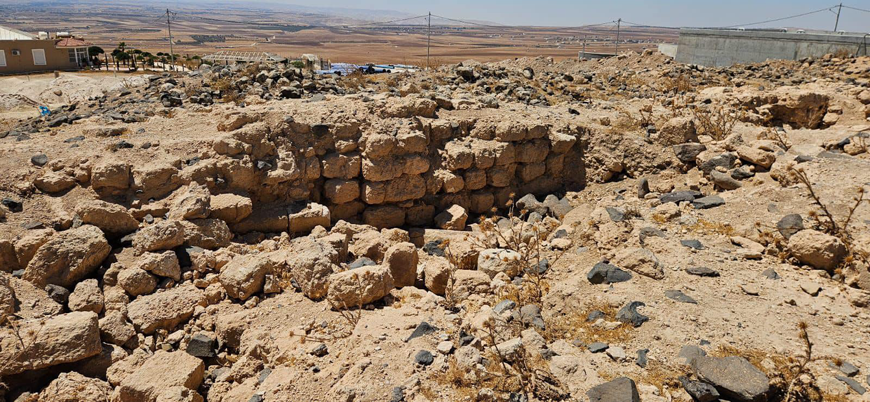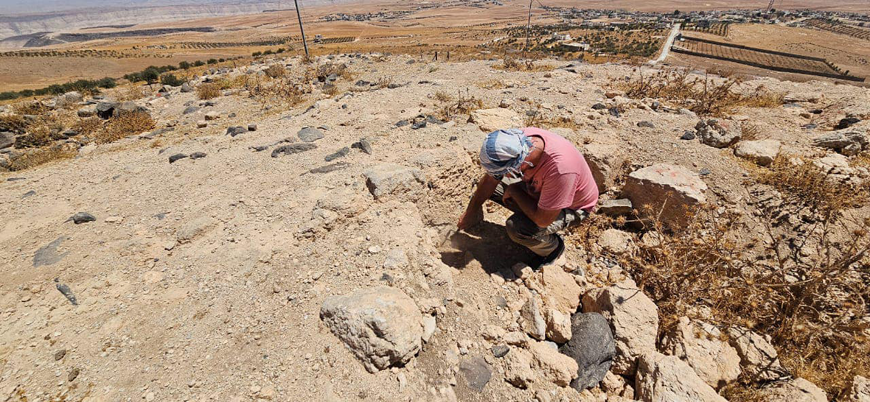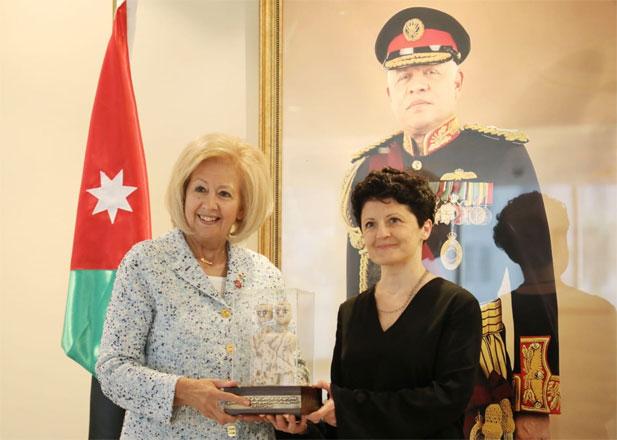You are here
Revival of Georgian archaeological mission in Jordan: New step to preserve shared heritage
By Sophie Constantin - Aug 17,2024 - Last updated at Aug 18,2024

This initiative marks a significant step in deepening the cultural and historical ties between Jordan and Georgia (Photo courtesy of the Ministry of Culture)

AMMAN — A team of Georgian archaeologists has embarked on a mission to Jordan to conduct archaeological researchat the ruins of the Georgian desert monastery on Mount Shihan, near the city of Karak. This initiative marks a significant step in deepening the cultural and historical ties between Jordan and Georgia, reflecting a shared commitment to preserving and studying the rich heritage of the region.
This project, reported by the National Agency for Cultural Heritage Preservation of Georgia, stems from an agreement reached in July during a visit by Georgia’s Minister of Culture, Tea Tsulukiani, to the Hashemite Kingdom of Jordan. The agreement outlines a collaborative effort to explore and restore key archaeological sites that are significant to both nations.
During her visit, Tsulukiani, accompanied by her delegation, visited the Georgian monastery at Shihan, in Southern Jordan, as well as the city of Madaba, alongside members of the Karak Tourism Directorate. In discussions with her Jordanian counterpart, Haifa Najjar, the ministers explored ways to strengthen cultural ties and enhance collaboration between Georgia and Jordan.
Najjar extended an invitation to Tsukuliani to explore Jordanian archaeological sites, suggesting potential future partnerships, while Tsukuliani reciprocated with an invitation for Najjar to visit Georgia, aiming to further solidify these collaborative efforts.
To advance the agreement, the National Agency for the Protection of Cultural Heritage of Georgia appointed the professor Vakhtang Lichel from Tbilisi State University to lead the expedition.Under his leadership, the team will conduct reconnaissance missions and develop a comprehensive plan for large-scale archaeological activitieson the site. This collaborative project involves close coordination with Jordanian archaeologists and officials from the Jordanian Ministry of Tourism and Antiquities.
Commenting on the project, the Minister of Culture’s press office stated, “As a result of the talks in Jordan, the parties decided that the Georgian side would recruit a team of Georgian scientists and archaeologists who would travel to Jordan for archaeological work.”
The Georgian monastery on Mount Shihan was foundedduring the 11th century by the Georgian cleric Gabriel Tbileli, who spent the last years of his life at the monastery. The monastery also serves as the burial site of Saint Prokhore the Georgian, known for his role in rebuilding the Holy Cross Georgian Monastery of Jerusalem during the late 11th century.
The monastery remained active until the 13th century, serving as a hub for Georgian pilgrims. Manuscripts produced at the monastery, some of which are preserved in the library of the Greek Patriarchate of Jerusalem, offer valuable insights into the religious practices of the time.
The Shihan monastery is part of a network of Georgian monasteries that were established across the Middle East, marking the influence of Georgian monasticism during the medieval period.
In recent years, the Georgian expedition to Jordan has been unable to operate, though it previously played a vital role in documenting and exploring Georgian monasteries in Jordan and its neighbouring countries, led by the Georgian scholar Tamila Mgaloblishvili.
Due to various challenges, including the pandemic, Georgian archaeological efforts in the region were put on hold until now. The revival of the Georgian archaeological mission in Jordan marks a promising new chapter in the study of the region’s shared heritage, with the potential to uncover new insights and strengthen the cultural bonds between the two nations.
Related Articles
AMMAN — Minister of Culture Haifa Najjar and Georgian Deputy Prime Minister and Minister of Culture, Sport and Youth Thea Tsulukiani met on
AMMAN — A direct air link between Jordan and Georgia will be established with two flights per week, Georgian Ambassador to Jordan Zaza Kande
AMMAN — Cultural heritage faces severe challenges due to military conflicts around the world.


















